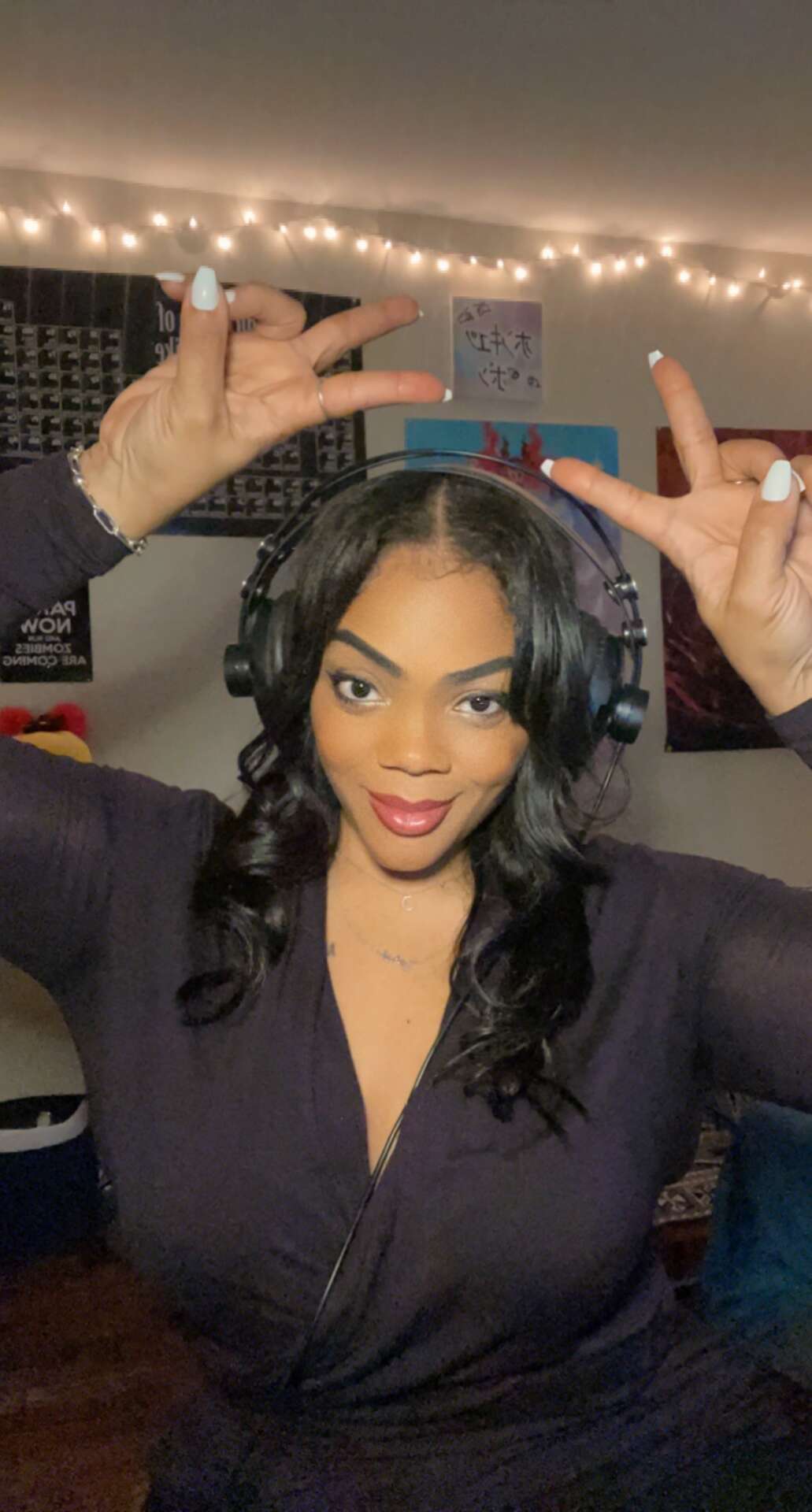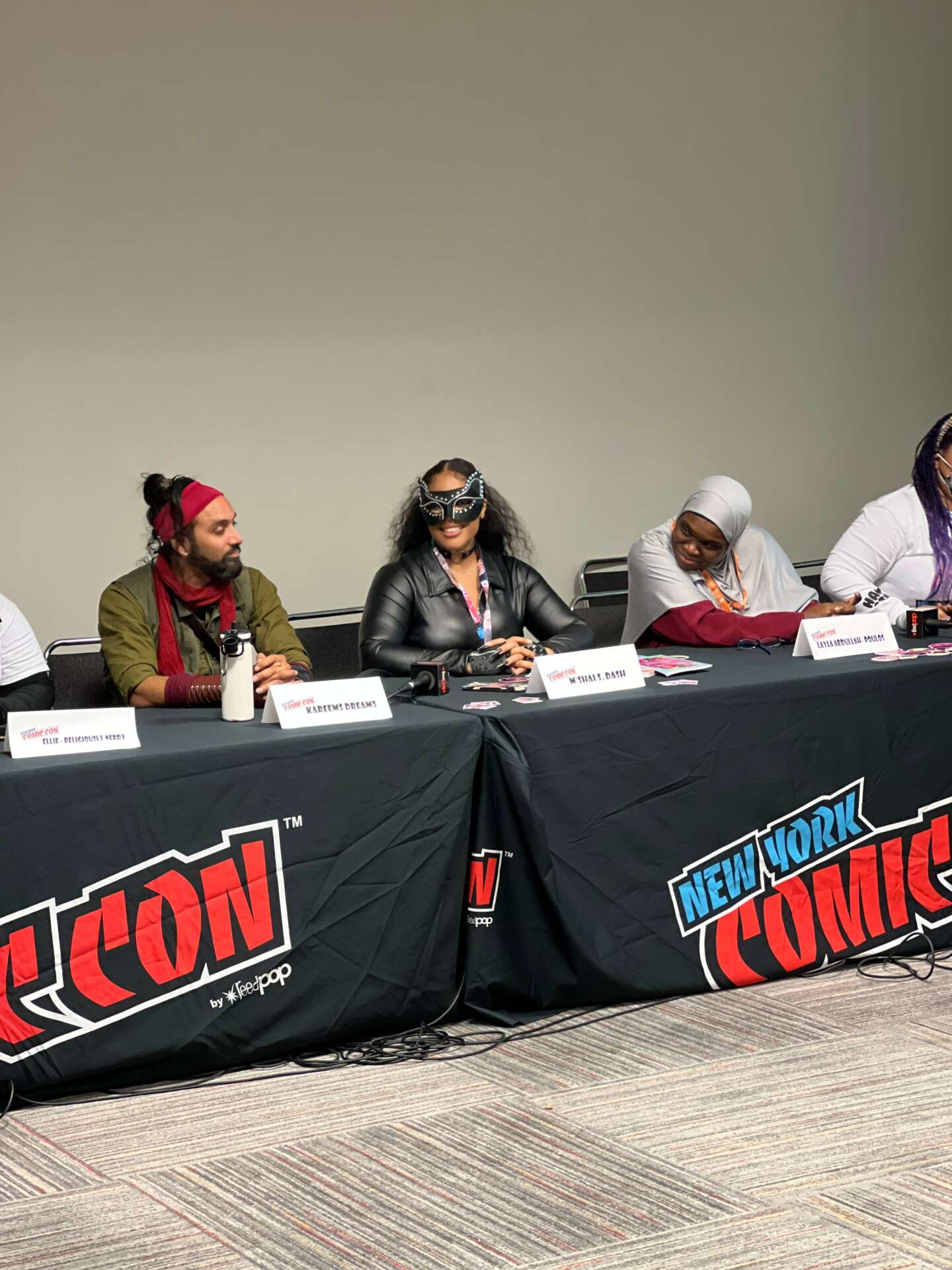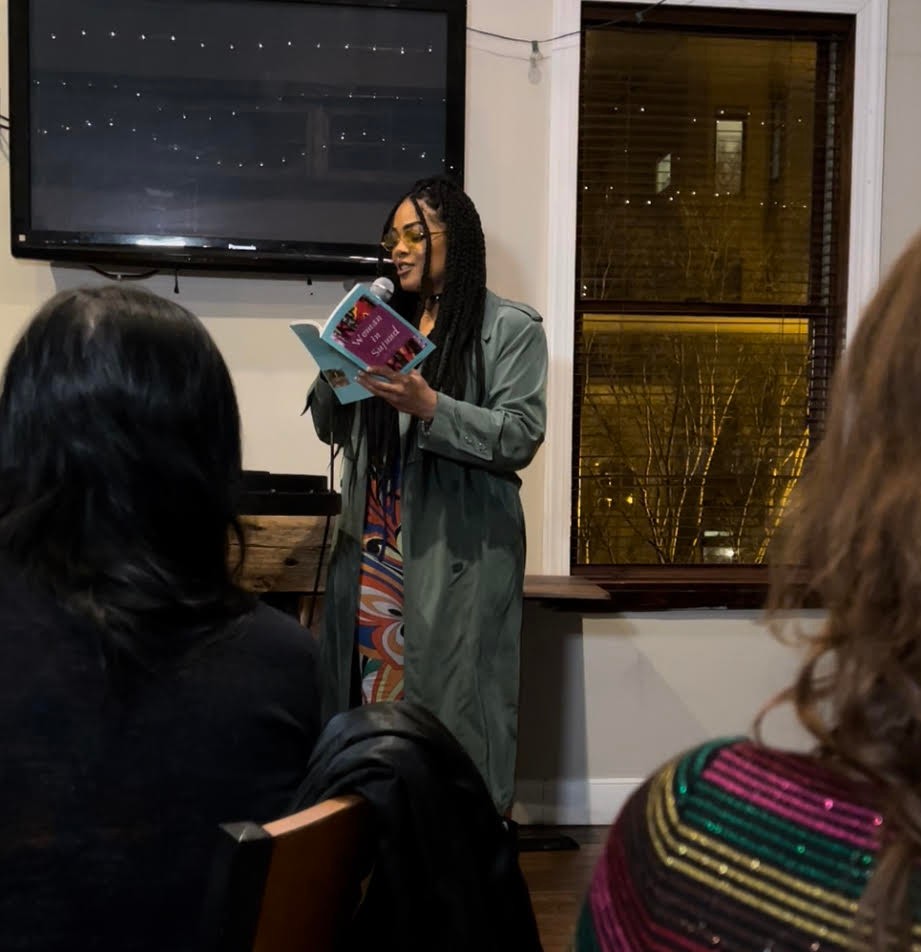Alright – so today we’ve got the honor of introducing you to M’Shai Dash. We think you’ll enjoy our conversation, we’ve shared it below.
Alright, M’Shai thanks for taking the time to share your stories and insights with us today. We’d love to hear about a project that you’ve worked on that’s meant a lot to you.
It’s difficult to single out one particular project but I’ve definitely worked with people who influenced me, connected me to opportunities I wouldn’t have otherwise known about, and will always mean a lot to me. After successfully pitching a few articles early on in my freelance career, I was stoked to find paid work with blackscifi.com. I stayed on with them for years and my fellow writers for that online mag became huge inspirations for me. One, Robert Jeffrey, is an amazing editor and comic book writer. Others are award-winning authors, visual artists, and podcasters. The magazine was my first outlet into the community that I’m immersed in now (one that focuses on the work of BIPOC creatives), and through that network, I gained access to my first paid gigs and built an audience for my own writing. That all started in 2015, and since then I’ve spoken at conferences and schools and published two books. While speaking on the conference circuit promoting my book and speaking about speculative fiction, I met Tonia Ransom, one of the creators and executive producers for the Nightlight Podcast, and she thought I’d be a good fit to voice to narrate one of Nicole Givens Kurtz stories (‘Sweet Tooth’) for the podcast. This blew me away because Nicole was one of the first authors I’d met several years earlier in Atlanta while covering the State of Black Science Fiction Conference (SOBSF Con, 2016), founded by Milton Davis. I was stoked to work with Givens and Ransom on that project, and narrating that story for the podcast led to me being tapped by Ransom and her cofounder, Jenz Ink, for another paid voice-over project called Afflicted: A Horror Thriller Audio Drama. I learned a lot about voice acting and storytelling on that project too. Truly, all of these opportunities sprang from projects and opportunities sourced from my creative community, and each time I take the stage to speak on a panel or submit a written story or audio narration is meaningful to me. I’m grateful for it all.

Great, appreciate you sharing that with us. Before we ask you to share more of your insights, can you take a moment to introduce yourself and how you got to where you are today to our readers
I’ve been writing for as long as I can remember, but never found a foothold and purpose in it until I tied my creative work with the issues that also fueled my social awareness. I grew up as a huge fan of comic books, poetry, and speculative fiction, and read everything I could get my hands on. But eventually, it struck me that there weren’t many characters I could connect with on a personal level.–none who looked or spoke like me. Then, after attending an HBCU and delving into a space where all the creators I worked with were invested in cultivating and sharing works from Black creators, I drummed up the courage to take the helm creatively and publish some of my own work on the intersection of faith, race, and sexuality (‘Woman In Sujud’) and put out a sci-fi collection that is, in a way, a public love letter to Black heroines (Quirky Black Sci-Fi Tales: Volume I). What keeps me galvanized in my creative process and drives me to seek new avenues to reach wider audiences, is the singular idea that many creative industries–literature, film, and even fashion–want stories from BlPOC creators and money from BIPOC audiences, but aren’t willing to budge on how much of our narratives we control in the mainstream. My mission statement, and what I speak about when I’m on most panels, is the danger of letting that continue. I want to move the needle forward in a way that eventually shatters hegemonic practices, especially in the literary world, and I participate in that charge by writing and speaking from an authentic space.
Are there any resources you wish you knew about earlier in your creative journey?
I’ve used tons of tools to write, but throughout the years I’ve learned more about ableism and the different ways that audiences interact with stories, and that recently led me to change my creative process. I have a cousin who was an amazing visual artist, then later lost her eyesight. She, and others, expressed to me that going forward I should always consider that a large fragment of my audience may not be traditional readers. Honestly, I wish that I’d realized sooner. So, while I’ll always recommend organizational tools like Scrivener and First Draft for stories and scripts, I highly recommend using the simple accessibility tools built into many applications as part of the creative process. Simply put: close your eyes, hit the ‘Read Aloud’ function in Word (or whatever you’re using), and actually listen to what you’ve written. That’s the technical side of my advice though. The other arguably more valuable part is using your network as a resource. Collaboration is, in itself, a resource. I’ve found mentors in the most unlikely situations just by supporting others and staying connected, and I can’t stress enough that having a mentor or seasoned circle of peers to bounce ideas with is priceless.


We often hear about learning lessons – but just as important is unlearning lessons. Have you ever had to unlearn a lesson?
The biggest lesson I had to unlearn is that everything has to be perfect. Really, there’s no such thing because what looks polished to me one day may shift in the future. I’ll always maintain a high standard for myself in whatever I do, but ultimately, work is better finished than (what I’d deem) perfect. I also learned that for some of the best creatives, even their most lauded work is flawed in their eyes. I had projects that I sat on for years because I was petrified at the idea of putting them out there and later wanting to recall them, or having some of them rejected. Then I learned that rejection is just part of the process. There’s no way around that. Also, perfectionism is a double-edged sword as a creative, especially when you’re working collaboratively. Naturally, you do your best, put out something you feel your audience will love, and hopefully, you follow a logical, tested process to do it. But after that comes the hard part. A few years down the line you may look at your first body of work and not be as thrilled with it as you were at first. If you do, just know that it isn’t weird to feel that way. Really, that feeling indicates that you’ve likely refined your craft since that release. When I interned on Capitol Hill, I went through a content-creation boot camp called Digital Academy. As part of the coursework, we visited Google’s D.C. headquarters and I was surprised to see a poster on the wall that said ‘Fail Harder.’ Today, I understand that poster more and more. Instead of spending time tearing yourself down about what you could’ve done differently, appreciate that you had the courage to launch, fail, and grow. If you had delayed that part of the process, you wouldn’t be where you are today. I know I wouldn’t.
Contact Info:
- Website: mshaidash.com
- Instagram: @mmmshai
- Twitter: @mshaidash


